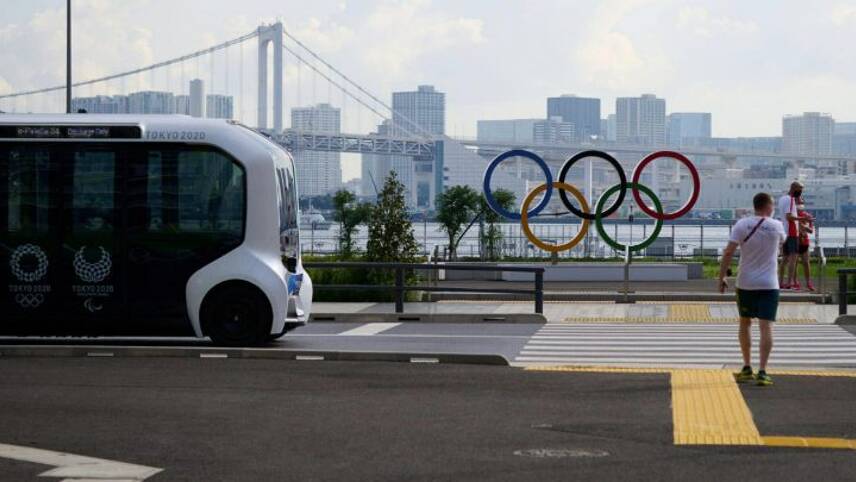Register for free and continue reading
Join our growing army of changemakers and get unlimited access to our premium content

Pictured: A hydrogen vehicle showcased at the Games. Image: IOC
The Committee has this week published a post-Games sustainability report for Tokyo 2020, revealing that a combination of carbon reduction measures, a ban on domestic spectators and offsetting through local schemes resulted in a carbon-negative event.
According to the report, the Games generated around 1.96 million tonnes of CO2e. This figure would have been around 2.76 million tonnes if domestic spectators were able to attend.
Meanwhile, the provision of certified excess reduction credits was confirmed by more than 217 businesses, with the total amount of credits available for offsetting the Games’ emissions standing at 4.38 million tonnes of CO2e. Credits were provided through Tokyo’s Cap-and-Trade Programme, which covers emissions from all large commercial and industrial buildings, and through the linked Saitama Target Emissions Trading System.
Building on this progress, the IOC itself has committed to becoming a carbon-negative organisation ahead of the 2024 Olympic Games in Paris. It will work to reduce its own emissions while also funding offsetting, backing nature-based solutions and projects that mitigate emissions, like renewable electricity and clean cooking fuels.
The IOC has also committed to halving the carbon footprint of Games and their value chains by 2030 and requiring future Olympic and Paralympic Games Hosts to outline plans for either achieving carbon-neutral events, or going further and achieving carbon negativity. Failure to produce strong commitments and plans, the Committee has stated, may mean cities lose out on host positions for post-2030 games.
“We can confidently state that sustainability is now firmly embedded as an executive priority within the IOC and this ethos flows into our corporate ways of working, our focus on ensuring sustainable Olympic Games and how we engage with the wider Olympic Movement,” said the chair of the IOC’s sustainability and legacy commission Prince Albert II of Monaco.
Tokyo highlights
Aside from progress on emissions, the IOC was keen to highlight the progress made at the Tokyo Olympics in regards to waste and resource management.
The new sustainability report reveals that 99% of the non-consumable items (so, think of items such as furniture and displays compared to food, drink, packaging and hand wash) were reused or recycled.
For example, the timber used to construct the Village Plaza was loaned from local authorities and returned post-event.
Meanwhile, a 62% recycling rate was achieved for packaging and paper.
The report outlines how the fact that most venues had no spectators changed the waste composition and levels of waste, meaning that organisers had to pivot their approach.
Also highlighted is the fact that the athletes’ medals were made from metals extracted from recycled electronic and electrical devices. This story made tabloid headlines worldwide during the game. Organisers said they took this decision to raise public awareness of e-waste – the world’s fastest-growing domestic waste stream. According to the UN, a record 53.6 million metric tonnes of electronic waste was generated globally in 2019, with levels up more than one-fifth from 2014.
Sarah George


a combination of carbon reduction measures, a ban on domestic spectators and offsetting through local schemes resulted in a carbon-negative event."
Is this really relevant? Great news that the IOC is setting eco-targets but using an event where the primary, secondary and tertiary effects of spectators were absent is a bit misleading to say the least.
It’s interesting that they are using certified excess reduction credits provided through Tokyo s Cap-and-Trade Programme to offset emissions and claim neutrality. I’m not familiar with the workings of the Japanese system, but there is a risk that credits may be available at low cost if, for example, emissions fell as a result of COVID in certain sectors. These credits would most likely not be acceptable under the forthcoming ISO 14068 on Carbon Neutrality.